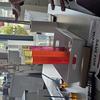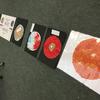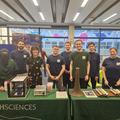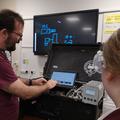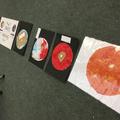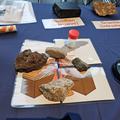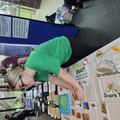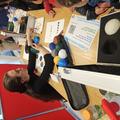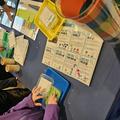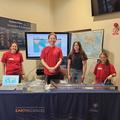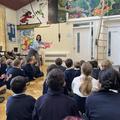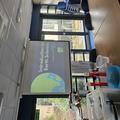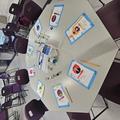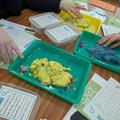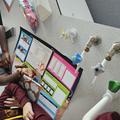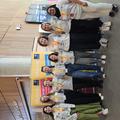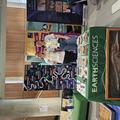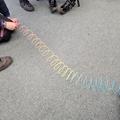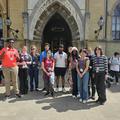
Rocks and Volcanoes
This engaging, practical workshop allows the students to get experience handling igneous rocks and discuss volcanic processes. Students describe rock samples, think about where in a volcano they formed and have the opportunity to experience wearing a volcanologist suit. They then take part in a series of whole-class experiments which investigate volcanic eruptions.
Suitable for: Year 3 and Year 4
National curriculum links: Rocks (Science), Volcanoes and Earthquakes (Geography)
Duration: 60 minutes
Maximum number of students: 30
Space requirements: Classroom with a projector, sink, access to an outdoor space, table at the front for setting up demonstrations, and tables for group work
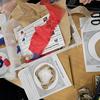
Planetary Interiors
This creative workshop involves learning about planetary compositions and how this relates to the distance between a planet and its nearest star. Students discuss the ‘snow line’, the boundary between rocky planets and gas giants. They then design their own planet with different materials. Together, the class then create their own planetary system. Designed by Hannah Sanderson.
Suitable for: Year 5 and Year 6
National curriculum links: Materials (Science), Earth and Space (Science), Rocks and States of Matter (Science)
Duration: 60 minutes
Maximum number of students: 30
Space requirements: Classroom with a projector and tables for individual work
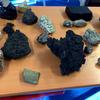
Volatile Volcanoes
This experiment-based workshop gives students the chance to discover the science of volcanic eruptions and how to predict them. They learn about what volcanic eruptions are, the role of gases, and think about how different types of magma affect explosivity. Students then become a team of volcanologists, whose role it is to observe and predict the behaviours of a volcano and successfully evacuate their island.
Suitable for: Year 5 and Year 6
National curriculum links: Rocks (Science), Volcanoes and Earthquakes (Geography)
Duration: 65 minutes
Maximum number of students: 30
Space requirements: Classroom with a projector, sink, access to an outdoor space, table at the front for setting up demonstrations, and tables for group work

Shaking Quakes
This practical workshop introduces students to the science behind earthquakes and how they are detected, before giving them the opportunity to build and test their own earthquake-proof structures. Students are challenged to build the tallest structure they can before using our shaker tables to see if they can withstand an earthquake. Designed by Rebecca Colquhoun.
Suitable for: Year 5 and Year 6
National curriculum links: Volcanoes and Earthquakes (Geography)
Duration: 60 minutes
Maximum number of students: 30
Space requirements: Classroom with a projector and large square tables (minimum 1.5m x 1.5m) for group work

Fantastic Fossils
This hands-on workshop introduces students to fossils and fossilisation, with the opportunity to handle a collection of fossils from different environments and time periods. Students then investigate sets of trilobite fossils - an ancient arthropod - and understand the differences in their features and what this tells us about their species, and the environments they were best adapted to. Designed by Stephanie Lechki.
Suitable for: Year 5 and Year 6
National curriculum links: Evolution and Inheritance (Science)
Duration: 60 minutes
Maximum number of students: 30
Space requirements: Classroom with a projector and tables for group work



